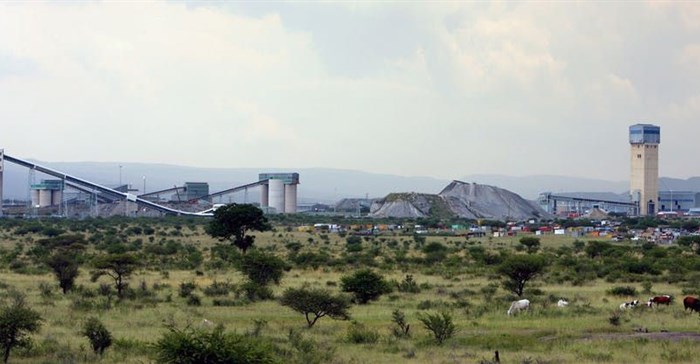
Top stories






More news


ESG & Sustainability
Redisa calls on govt to fix South Africa’s “broken” waste management system


























The Court ruled in favour of 13 families from the village of Lesetlheng in the north west against a platinum mine that evicted them from their farming land, as well as banned them from setting foot on it. The judgement is particularly important because it found that existing customary land rights are protected, even if a mining right has been granted on a piece of land.
In South African law, customary land rights are categorised as “informal” and are protected under the Interim Protection of Informal Land Rights Act of 1996. Customary land can be “both communal and individual” in character, depending on the purpose for which a particular piece of land was allocated. For instance, rights to grazing land and rivers are communal, while ploughing fields and residential plots are allocated for private family use.
Lesetlheng farmers base their claim to the land not only on customary rights but also on the grounds of ownership. They argue that their forebearers bought the farm as an independent African syndicate, but were denied ownership by colonial laws that privileged tribal ownership and state custodianship.
Their court victory is no small achievement, not only for the community involved, but also for many impoverished village farmers in South Africa who are forcibly relocated and dispossessed of their land due to mining operations.
The Constitutional Court ruling ushers in a glimmer of light that the dark era of colonial and apartheid land dispossession, and the long history of undermining African systems of landholding is slowly crumbling.
The judgment has also made significant progress towards interrupting the tyranny of looting by chiefs, state officials and mining capital as well as expropriation of the land belonging to the rural poor. These are realities that I’ve seen firsthand during a decade of researching the multiple effects of mining on rural communities in some of South Africa’s former homeland areas - areas to which black people were either moved to or restricted to prevent them living in “white” urban areas under apartheid.
South Africa has seen a significant rise in levels of rural grassroots resistance to the rapid expansion of mining as well as to the collusion between state officials, mining companies and local chiefs.
Since the late 1990s the state has given local chiefs, not only legal recognition as local leaders in rural areas, but de facto representatives of rural residents in business transaction and development endeavours.
On the platinum-rich lands of the North West Province, for instance, chiefs and their traditional councils have assumed custodianship of communal resources. This includes land. They have signed complex business deals with mining companies on behalf of rural communities.
There have been a number of problems with the way in which these deals have been done. Firstly, there are usually done with limited – or no – participation by the people most affected.
Secondly, the benefits that are meant to accrue to communities seldom see the light of day.
Because of this, ordinary villagers have been resisting having chiefs who claim to be acting on their behalf.
Lesetlheng in one of the impoverished villages under the Bakgatla traditional authority that lie scattered all over the north-eastern foothills of the Pilanesberg Mountain range north of Johannesburg.
I have spent considerable amounts of time with local residents researching the impact of mining and local struggles over the distribution of mining revenues and land. Resistance to mining-led dispossession has characterised this once laid back village ever since mining activities began on their farming land - the farm Wilgespruit 2 JQ – in the late 2000s.
The farm Wilgespruit 2 JQ – famously known as “Modimo Mmalo” – has been the only farming land for Lesetleng villagers for generations. It was one of the most productive farms in the Bakgatla area.
The elders in Lesetlheng told how their families used to harvest countless bags of sorghum, maize, beans, and many other crops. Some literature corroborates the history of agricultural productivity of this land.
Every winter, after harvesting, the farmers at Wilgespruit opened the farm for communal grazing.
Over the years, the Pilanesberg Platinum Mine’s open cast mine – owned by Sedibelo Platinum Mines – has expanded astonishingly. Former pastoral and agricultural land on this farm has been fenced off for new mining projects.
The only evidence left that the farm was once productive agricultural land are the abandoned small mud and corrugated iron structures where people used to live during ploughing season.
Some of the former plots had small dams that various clans dug to water their crops. Most have dried up. Following the Constitutional Court victory one can only hope that the Lesetlheng farmers will get their land back and resume farming.
The recognition of customary land rights is just a starting point. It’s crucial for the law, courts, the state and mining capital to take into account the history of African land dispossession. This is not only rooted in the non-recognition of African land holding systems, but also perpetuates the continued disposition of poor communities by the new rural frontiers of mining expansion.
This article is republished from The Conversation under a Creative Commons license. Read the original article.![]()

The Conversation Africa is an independent source of news and views from the academic and research community. Its aim is to promote better understanding of current affairs and complex issues, and allow for a better quality of public discourse and conversation.
Go to: https://theconversation.com/africa